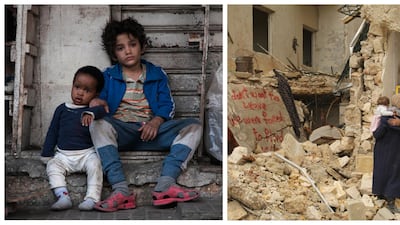Netflix has long been increasing its library of Arabic content for subscribers, but in the past few months, its investment in both classic and contemporary Arabic cinema has seen a much bigger push.
In May, the streaming giant introduced a special Eid collection that included some of the most renowned plays by Egyptian legendary actor Adel Imam, among others. It has also added contemporary Arabic films including Wajib by Annemarie Jacir and Heaven Without People by Lucien Bourjeily, to name a few, to its catalogue.
These films will now form part of a dedicated collection of 44 Arabic movies that will be available on Netflix from Thursday, June 18, including award-winning classics such as The Message by Moustapha Akkad and The Destiny by Youssef Chahine.
“We want more people around the world to have access to great stories and have the chance to see their lives represented on screen. We also believe that great stories come from anywhere and can travel everywhere connecting with audiences far beyond their place or language of origin," said Nuha El Tayeb, Netflix's director of content acquisitions for Mena and Turkey, in a statement.
Acclaimed works by both established and up-and-coming directors will also be added to Netflix, including Capernaum by Nadine Labaki, For Sama by Waad AlKateab and Edward Watts, Papicha by Mounia Meddour, You Will Die at 20 by Amjad Abu Alala and A Son by Mehdi Barsaoui.
Labaki's docu-drama, which tells the story of a 12-year-old boy living in the slums of Beirut, who sues his parents for bringing him into this world, was nominated for Best Foreign Film at the 2019 Oscars.
For Sama, meanwhile, a Syrian documentary filmed over five years from inside besieged Aleppo, was nominated for Best Documentary Feature at the 2020 ceremony.
Licensed from Front Row Filmed Entertainment, the films will stream globally to 183 million subscribers and will include subtitles in either English, Arabic or French, depending on the countries where they are streaming.
"Right now, streaming platforms are trying to gather as much local content as they can for each region," said Gianluca Chakra, managing partner at Front Row, in a recent interview with The National. "And they need to in order to increase their subscription base and cater to local markets."


